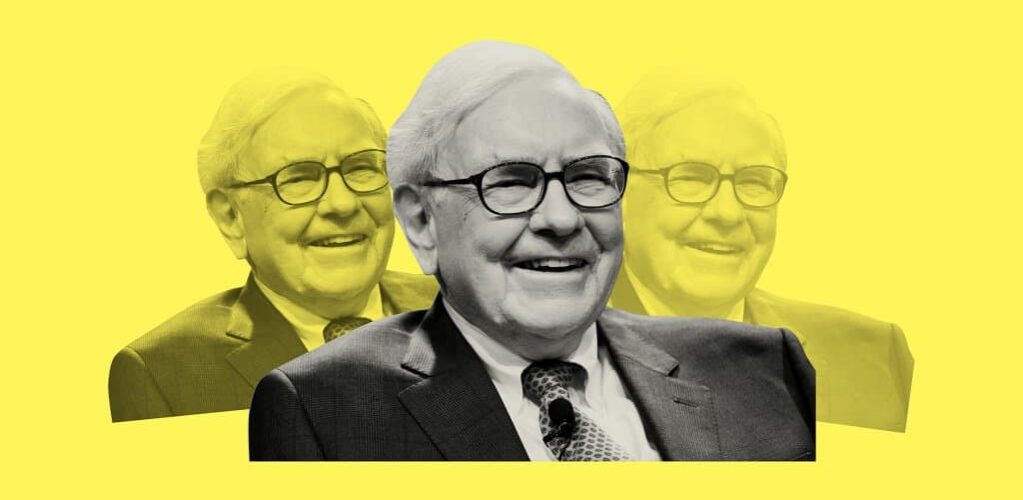Blog
People Laugh When Warren Buffett Says These 3 Words. But They’re Pure Emotional Intelligence
- March 11, 2021
- Posted by: Learnings For You
- Category: Blog

I’ve been reading all of Warren Buffett’s annual shareholder letters, for my free ebook, . (You can download it here.)
That experience gave me another idea — to read the transcripts of the annual Berkshire Hathaway shareholder meetings over the years. And a single, three-word phrase jumped out over and over.
In fact, you’ll find the phrase at least 119 times, going back to 1994.
Charlie Munger’s catch phrase
Let’s set the stage (literally). Most years, the annual, marathon Berkshire shareholder meetings are a main event in Omaha.
Hotels sell out. Airlines add flights. For hours, Buffett and Berkshire vice-chairman Charlie Munger take the dais and answer questions from journalists and shareholders.
During these meetings, Munger is well-known for staying silent for long stretches, even though he’s sitting right next to Buffett. In fact, when Buffett concludes some of his lengthy answers, he’ll ask Munger for his take — and Munger quite often replies simply: “Nothing to add.”
At this point, it’s happened so often (as I say, the phrase is repeated 119 times in the transcripts going back to 1994), that it’s become Munger’s catch phrase. Buffett sometimes gets a laugh by imitating him and saying it himself.
Last year, Munger couldn’t make the trip to Omaha for the annual meeting because of Covid, but the joke continued. Buffett sat instead with Greg Abel, who is head of all of Berkshire’s non-insurance industry companies.
(The silver lining here is that Abel is one of two executives seen as Buffett’s likely heir apparent, whenever Buffett steps down, so the more exposure Abel has to shareholders and the media, the better.)
A 2-hour setup
Anyway, Buffett talked almost without interruption for the first two hours of the event, before finally turning to Abel. Their exchange — all credit to them — went like this:
- Buffett: Greg, would you like to add anything to that?
- Abel: Really nothing to add, Warren.
- Buffett: We’ve got another Charlie!
In retrospect, this might be one of the funniest, most deadpan things I’ve ever heard — certainly the funniest line in a corporate governance meeting. Even though Abel goes on to say he didn’t intend to use the line, it was still a 2-hour setup!
Emotional intelligence
As much as I’m still laughing thinking about this now, however, I’m convinced that Buffett, Munger (and now Abel) are illustrating something truly brilliant by using this phrase so much that it’s almost become a cliche.
In fact, it’s an example of extraordinarily highly tuned emotional intelligence.
Here’s what I mean: The entire crux of emotional intelligence is the ability to take stock of your emotions, and leverage them so that you get the outcome you’re looking for in interactions.
Juxtapose that with what a lot of people do, which is to let their emotions control them, and ultimately dictate results that they didn’t want. I think there are two illustrations that come into play with this short phrase.
- The first has to do with keeping the focus of conversations on other people, as opposed to yourself.
- The second has to do with embracing silence over saying things that you haven’t thought through.
The courage to say nothing
Imagine that you were in Munger’s place, or Abel’s, on stage with Buffett. Or else, imagine any circumstance in which you’re on display, next to a more senior or central person in your organization — and everyone has gathered to hear their take.
Minutes go by, heck hours in this case, and finally you get the opportunity to speak. I suspect that every fiber of your being tells you:
- I have to come up with something great to say; this is my time to shine.
- Or at least: I have to show that I’m competent enough to have earned my place up here.
- Or at the very least: Oh man, if I don’t say something smart people will think I haven’t even been paying attention.
- But, think about the other person. Think about the audience. Think about whether everything that needs to be said has already been said.
It takes guts to say nothing in this situation; to admit, quite plainly, that you have nothing to add.
But sometimes saying nothing is the smartest thing you could possibly contribute. And heck, you might even get a laugh out of it.
(Don’t forget the free ebook: .)
This content was originally published here.
